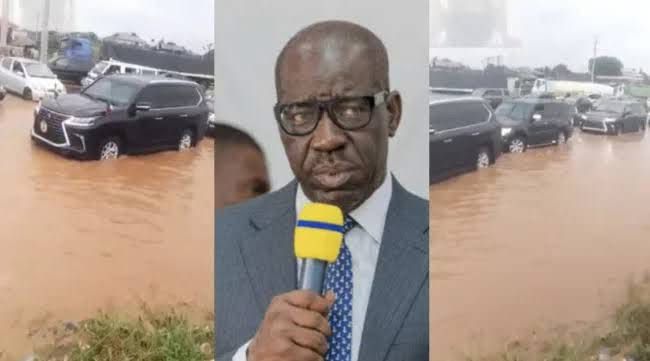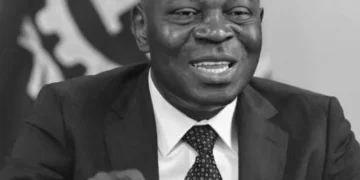The recent wave of severe flooding in Benin City has reignited public debate and scrutiny over the $150 million allegedly spent by the immediate past administration of Governor Godwin Obaseki on flood control in Edo State.
Residents and public affairs commentators have expressed deep concerns following the persistent and worsening flood situation in the state capital, despite the hefty sum reportedly committed to tackling erosion and flood management.
In June 2023, former Governor Obaseki announced that his administration had invested over $150 million — approximately ₦225 billion — on erosion and flood control projects in Benin City. However, the recent floods, which rendered several roads impassable and submerged numerous homes, have cast doubts on the efficacy and existence of such interventions.
Amid the public outcry, some supporters of the former governor took to social media, sharing footage of the flooded city while mocking the incumbent government. Critics, however, argue that these videos inadvertently spotlight the unresolved infrastructural challenges inherited by the current administration.
Governor Monday Okpebholo, who assumed office less than eight months ago, has been absolved by many residents from blame for the recent disasters. Public commentators noted that the state’s current flood problems are largely the product of years of neglect.
During the tenure of Comrade Adams Oshiomhole, the Benin City Storm Water Master Plan was launched as a comprehensive strategy to address flooding. Stakeholders lament that Obaseki’s administration reportedly abandoned several of these projects in favour of other initiatives, including the Museum of West African Art (MOWAA) and the Radisson Hotel project.
In response to the recent crisis, the Okpebholo-led government has embarked on remedial works, including the rehabilitation of major roads, construction of side drains, and reclamation of erosion-prone areas like the Upper Uteh–Temboga corridor.
Observers insist that while these interventions are laudable, they prompt urgent questions about the alleged $150 million flood control expenditure. Calls have intensified for Obaseki to provide a comprehensive account of the funds: the projects executed, the contractors engaged, and the actual deliverables achieved.
Commentators argue that addressing these concerns is critical to fostering public confidence and ensuring transparency in governance.
The controversy over the flood control fund comes amid wider concerns about the legacy of the previous administration, including alleged shortcomings in the EdoBEST education programme, civil service reforms, and state-owned tertiary institutions.









